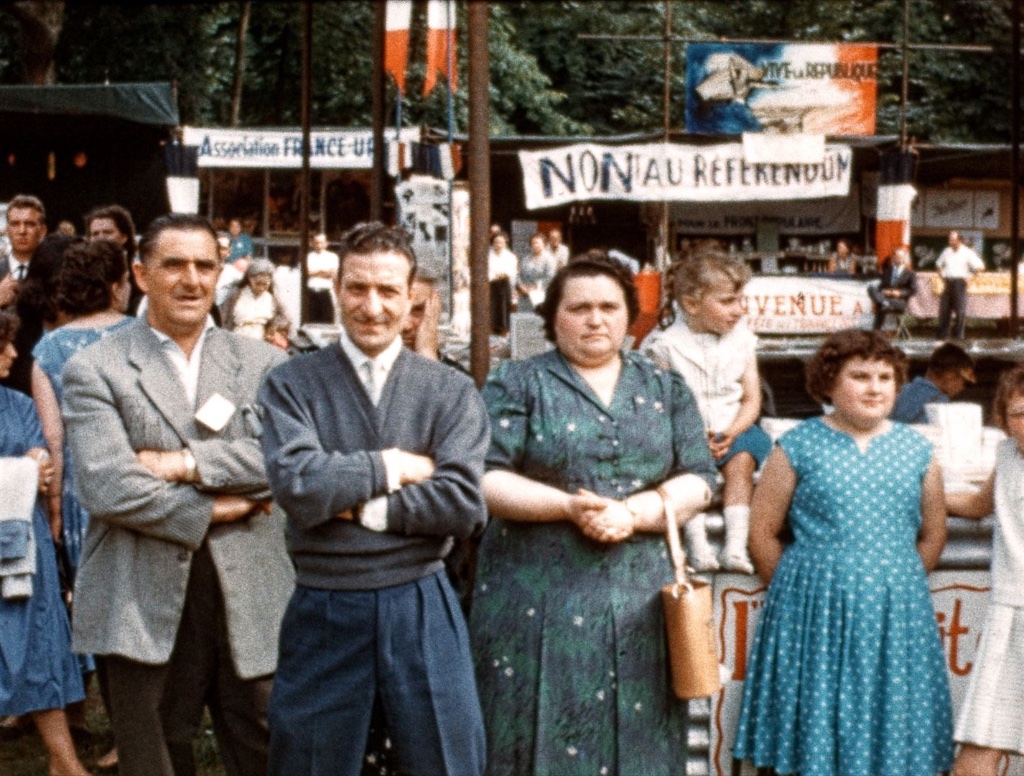
Cinematic adaptations of books always carry with them multiple challenges. How faithful, for example, should one be to the written text? What should be omitted or added? And how does the film work purely on its own terms, without knowledge of the original book? The challenges are, if anything, exacerbated when the film is a documentary based on an autobiographical sociological essay, as in Jean-Gabriel Périot’s new film, which takes its inspiration and title from Didier Éribon’s phenomenally successful book, Retour à Reims (Returning to Reims), published in 2009.
In the book, Éribon recounts how his father’s death led him to return to the city of his birth, which he had abandoned 30 years previously, and to retrace his family’s history and working-class roots.
Since my responses to the documentary on its own and to the film as an adaptation of the book differ strongly, it seems only fair to consider each dimension separately in this review.
In the movie, Périot deftly weaves together quotations from the book with a stunning variety of filmed clips from the early years of the 20th century to the present, in which French working-class women, men and children are interviewed or depicted onscreen. He succeeds in painting a moving portrait of the hardships faced by those struggling to make a living and gives a voice to many people, especially women, who so often have not been heard.
One interviewee’s description of life as being “une quincaillerie de malheurs” (a junk heap of misfortunes) has a poetry all of its own. Moreover, the way Périot uses Éribon’s sociological analysis to show how the working class’s former adherence to socialism has given way to support for the far-right in France, leading to the demonstrations and riots of the Gilets Jaunes (Yellow Vests) in more recent years, is utterly compelling. The results of the first round of voting in Sunday’s 2022 French presidential elections only serve to reinforce this move toward the far right.
However, as an adaptation of Éribon’s book, the movie is problematic. Although the quotations from the book are beautifully delivered by Adèle Haenel (the leading actor in a number of films directed by Céline Sciamma), the fact that Éribon speaks from a first-person perspective about his parents and grandparents and his self-identity with respect to them in the book is obscured by the use of a female narrator in the film.
By far the most serious directorial error, however, is the decision to omit all reference to Éribon’s sexuality in the film. In the book, the author’s conceptions of social and sexual identity are closely intertwined, and in both he finds himself bound by a sense of shame, exacerbated by the homophobia of his father and the milieu he grew up in. To remove his sexuality entirely from the movie is, I would argue, tantamount to another kind of homophobia, where something deemed to be less important is airbrushed from the picture by the director. I presume that Éribon signed away the film rights to his book, but it might also account for the fact that Périot has added “Fragments” in parentheses after the title of the movie.
It remains a serious misjudgment in a documentary that nonetheless deserves to be seen for its astute analysis of the French working class.
Favorite